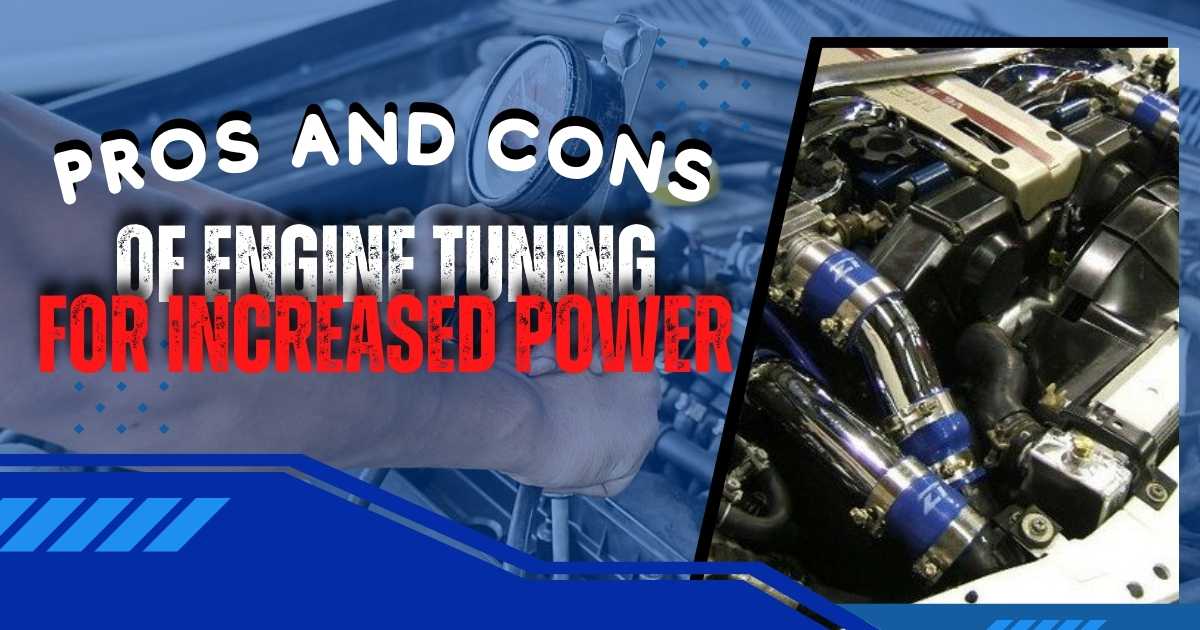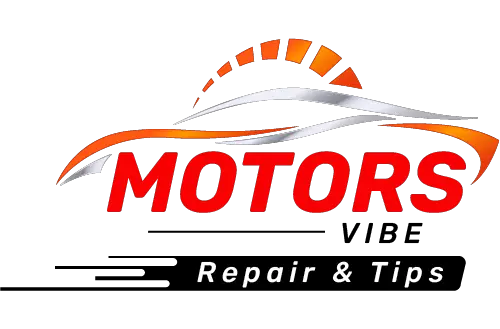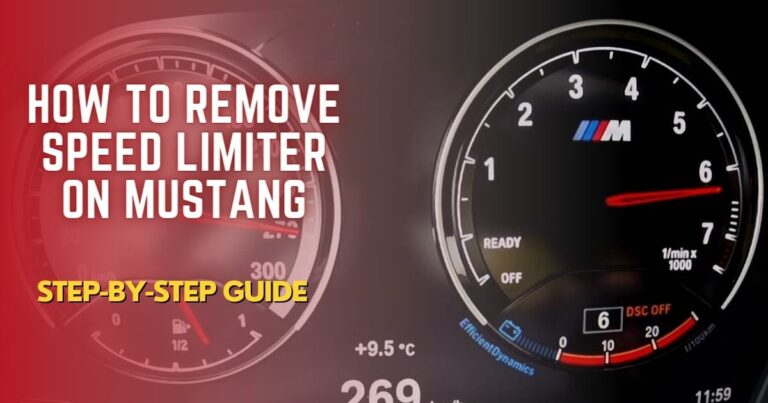The Pros and Cons of Engine Tuning for Increased Power
If you are a car enthusiast, you’ll always want to get the best out of your car. Engine tuning is often the best avenue to fine-tune and customize your vehicle to align with your driving preferences and style. More and more folks are increasingly adopting the practice of engine tuning to enhance their vehicle’s performance and customize its characteristics to better suit their preferences.
Whether you’re after increased horsepower, improved acceleration, or simply a more responsive driving experience, engine tuning provides a means to elevate your car beyond its factory specifications. However, engine tuning requires careful consideration of its pros and cons to ensure it aligns with your goals and doesn’t compromise the overall integrity of the vehicle.
What is Engine Tuning?
Engine tuning is the technique of adjusting or upgrading a vehicle’s engine to enhance its performance, efficiency, and overall functionality. In typical applications, the stock engine is often designed to offer a balance of performance and fuel efficiency in a range of driving conditions.
On the other hand, a tuned engine is customized to cater to the preferences and requirements of the vehicle owner. The primary goal of engine tuning is to enhance the performance of a vehicle’s engine. This includes improving aspects such as horsepower, torque, and overall drivability. Enthusiasts often seek engine tuning to achieve a more powerful and responsive driving experience.
Engine tuning entails both hardware changes and software modifications aimed at optimizing a vehicle’s performance. Hardware changes involve installing aftermarket components such as air intakes, exhaust systems, and turbochargers. On the other hand, software modifications focus on adjusting the engine’s electronic control system, often through methods like ECU remapping, performance chips, or software upgrades.
That said, tuning requires an experienced eye, a keen ear, and a profound understanding of how car engines operate.

Pros of Engine Tuning
Increased Power and Performance
Engine tuning is undoubtedly one of the easiest ways of increasing the power and performance of your vehicle. This process helps increase vehicle power by optimizing the parameters that affect the combustion process and overall engine performance. If you’re planning to perform an engine tuning, you can expect to enjoy a discernible enhancement in the vehicle’s capabilities, including improved acceleration and the ability to attain higher speeds.
Improved Fuel Efficiency
Engine tuning can also improve fuel efficiency, but the impact depends on the specific modifications made and the tuning goals. In most cases, tuning is done with a focus on maximizing power, which results in a trade-off with fuel efficiency. However, when done thoughtfully, engine tuning can help optimize the air-fuel mixture, resulting in a more economical fuel consumption pattern.
Enhanced Driving Experience
Beyond the quantitative improvements, engine tuning contributes significantly to the qualitative aspect of driving. The increased performance is complemented by improvements in throttle response, which delivers a more immediate and satisfying reaction to driver inputs. Enhanced throttle response, in turn, facilitates smoother power delivery across the RPM range, making the vehicle more adaptable to different driving conditions.
Customization and Personalization
Engine tuning allows vehicle owners to customize the vehicle to align with their specific performance preferences. Through adjustments to parameters such as the air-fuel ratio and ignition timing, drivers have the liberty to customize their engine’s performance to align with the desired driving experience.
Cons of Engine Tuning
Warranty Issues
One significant drawback of engine tuning is the concern about voiding the manufacturer’s warranty. Modifying the engine beyond the factory specifications can lead to a loss of warranty coverage, leaving the vehicle owner solely responsible for any subsequent repairs or issues.
Increased Wear and Tear
Pushing an engine beyond its factory specifications through tuning can have consequences on the vehicle’s longevity. For instance, increased stress and demands on the engine result in accelerated wear and tear, which can, in turn, compromise its reliability. Furthermore, the heightened strain can lead to more frequent maintenance requirements and increased risks of unexpected failures.
Transmission Strain
Tuning for increased power is believed to put additional strain on the transmission. This can lead to premature wear and transmission failures, especially if the original transmission design is not suited to handle the modified power levels.
Emission Compliance
Tuning modifications can impact a vehicle’s emissions performance, raising concerns about environmental compliance. For instance, enriching the air-fuel mixture often leads to increased emissions, thereby contributing to air pollution. Increasing boost pressure in turbocharged engines and exhaust components can also lead to elevated emissions.
Compatibility Issues
Aftermarket tuning components are not always compatible with the vehicle’s existing systems. This can crop up a range of issues, such as sensor errors and electronic control unit conflicts.
Factors to Consider Before Engine Tuning
Performance Goals
Before you embark on any tuning practices, it is essential to determine the specific outcomes or improvements you seek in your vehicle’s performance. This will ensure that modifications align with your objectives and result in the desired enhancements without compromising other aspects of the vehicle’s performance.
Warranty Implications
As we have already mentioned, modifying your vehicle’s engine can have significant warranty implications. Most vehicle warranties explicitly state that any modifications to the engine or related components can void the warranty.
So, before opting for engine tuning, it’s crucial to weigh the performance gains against the risk of voiding the warranty. Consider whether the increased horsepower, improved fuel efficiency, or other enhancements are worth the financial consequences of losing warranty coverage.
Tuning Technique
When considering engine tuning, choose a technique that’s compatible with your vehicle and the desired outcomes. Options include traditional chip tuning, reflash, or a piggyback ECU. Each of these methods has pros and cons, so it is important to carefully evaluate the options that align with your specific needs and vehicle requirements.
Emission Regulations
Verify the legal implications of engine tuning in your region. Some modifications may not comply with local emissions or safety standards. Remember, non-compliance could result in fines or other penalties.
Vehicle Condition
Ensure that your vehicle is in good condition before tuning. You may also want to address any existing mechanical issues to prevent complications during and after the tuning process. Ensuring that your vehicle is in good condition not only facilitates the tuning process but also contributes to the long-term durability of the engine and other components.
Budget Constraints
Engine tuning can range from simple adjustments to extensive overhauls. Determine your budget for tuning and choose modifications that align with your financial constraints. Budgeting will help you make informed decisions and ensure that the tuning process aligns with your financial capabilities.
Expertise and Experience
Consider your level of expertise and experience with engine tuning. If you’re not familiar with the process, it’s advisable to seek professional help to avoid costly mistakes. Professionals bring a wealth of knowledge, technical skills, and access to specialized tools, which helps reduce the risk of mistakes and ensures that your tuning efforts result in the desired performance improvements.
Fuel Requirements
Some tuning modifications can alter your vehicle’s fuel requirements. Ensure that you understand any changes in fuel octane ratings or fuel system modifications needed to support the tuning adjustments. This ensures optimal performance, prevents issues like knocking, and maintains the engine’s longevity and efficiency.
Driving Experience
When contemplating tuning modifications, consider how they will affect the daily driving experience. Changes in power delivery, throttle response, or other characteristics can influence the daily driving experience. As such, it is important to strike a balance between performance enhancements and drivability to improve the driving experience.
Reliability
Aggressive tuning can increase wear and tear on components in the long run, which can shorten the engine’s lifespan. So before proceeding with tuning, consider its impact on the long-term reliability and lifespan of your engine.
Future Upgrades
Determine if the tuning modifications are scalable and allow for future upgrades. This is important if you plan to make additional performance enhancements down the line.
Conclusion
There is always room for improvement when it comes to vehicle performance. Car tuning has become a popular hobby among professionals and car enthusiasts who are looking to customize and improve their vehicle performance. The best part yet, you can perform tuning on just about any car, from compact models to high-end sports cars. However, it is important to keep the above considerations in mind and ensure the tuning is done safely.




![How to Make Dodge Dart Faster [With Performance Mods]](https://motorsvibe.com/wp-content/uploads/2023/10/how-to-make-dodge-dart-faster-768x403.jpg)


